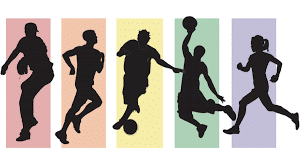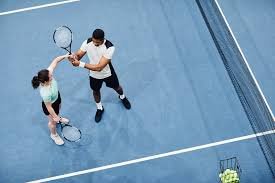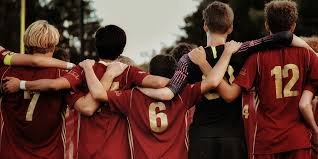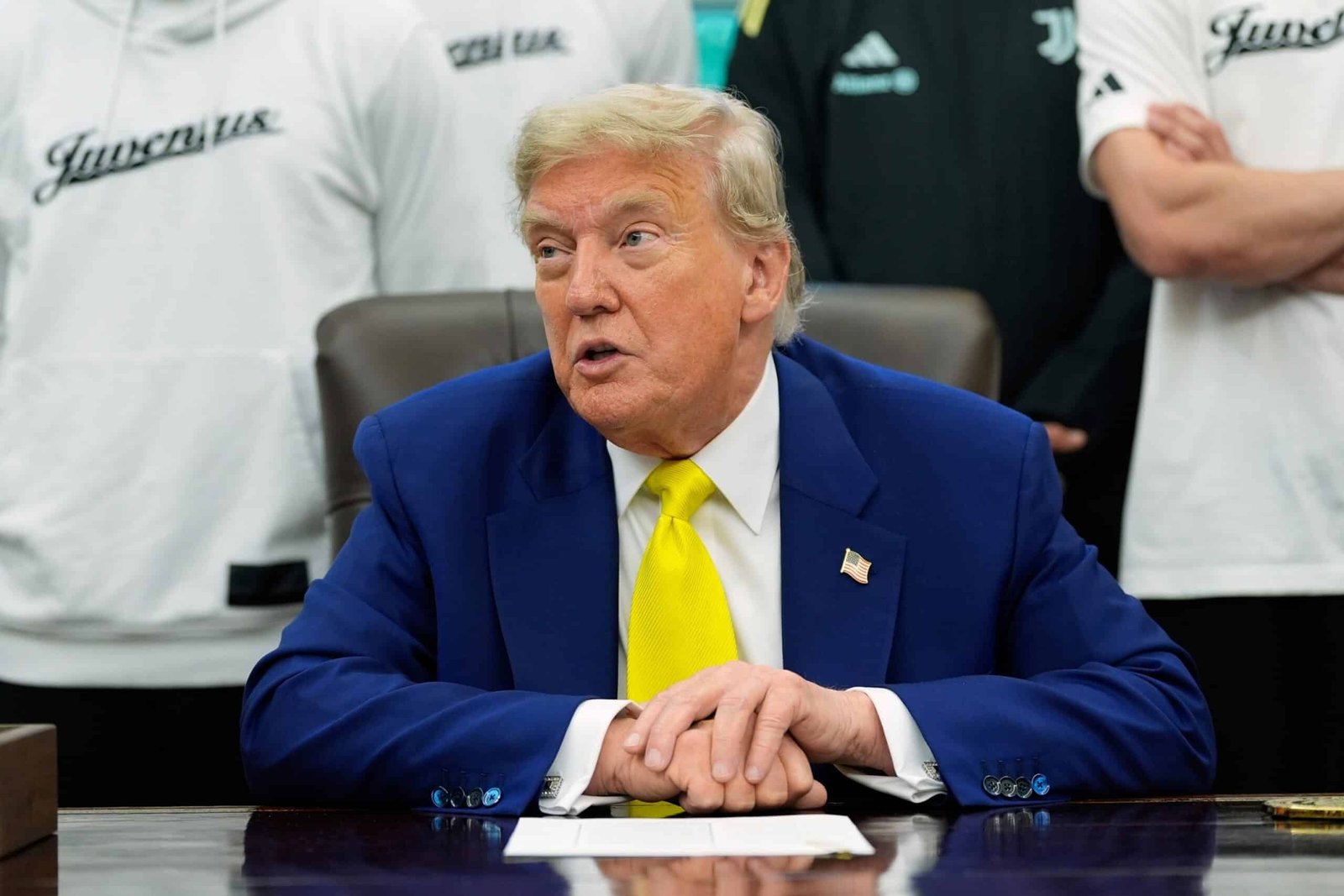Not every skill is crucial for playing a sport. Some skills matter more than others.
Participating in sports requires a mix of physical and mental abilities. While some skills are essential for success, others might not be as critical. Understanding which skills to focus on can help improve performance and enjoyment. This blog will explore the skills that are truly necessary and those that might not be as important.
By identifying these, athletes can better allocate their time and energy, ensuring they train effectively. Whether you’re a beginner or experienced, knowing which skills are vital can make a significant difference. Let’s dive in to find out more!

Credit: www.ryecountryday.org
Introduction To Sports Skills
Sports skills are essential for athletes. They help in achieving excellence and maintaining fitness. Skills vary based on the sport but some are universally important.
Importance Of Skills In Sports
Skills in sports play a crucial role. They contribute to better performance and reduce injury risks. Here are some key points:
- Coordination: Helps in smooth movements and efficient energy use.
- Endurance: Allows athletes to perform longer without fatigue.
- Strength: Essential for power and agility in many sports.
- Flexibility: Prevents injuries and enhances performance.
These skills are critical. They form the foundation for any sports activity.
Common Misconceptions About Sports Skills
Many believe certain skills are essential for all sports. This is not always true. Let’s clear some misconceptions:
- High Intelligence: Not necessary for physical sports. Focus is on physical abilities.
- Advanced Technology Knowledge: Rarely needed. Basic understanding suffices.
- Artistic Talent: Irrelevant for most sports. Creativity can help, but it is not critical.
Understanding these misconceptions can help in better training and preparation.

Credit: www.amazon.com
Essential Physical Skills
Participating in sports demands a variety of physical skills. These skills ensure peak performance and reduce the risk of injury. While some skills are more critical, others may not be as essential. Understanding these differences is vital for every athlete.
Strength And Endurance
Strength and endurance are fundamental for most sports. Strength helps in exerting force and carrying out powerful movements. Endurance allows athletes to sustain prolonged activity without fatigue. Both attributes are crucial for maintaining performance throughout the game.
Coordination And Agility
Coordination and agility play key roles in sports. Coordination involves the ability to use different parts of the body smoothly and efficiently. Agility refers to the ability to move quickly and change direction with ease. These skills are essential for sports that require quick reflexes and precise movements.
Key Mental Skills
Participating in sports requires a blend of physical and mental skills. While agility and strength are vital, mental skills are equally crucial. These skills can make a significant difference in performance and outcomes. Below, we explore two key mental skills needed in sports.
Focus And Concentration
Focus and concentration are essential for any athlete. Staying focused helps maintain performance levels. Concentration ensures athletes can react quickly and make precise movements. Distractions can easily affect an athlete’s game. Maintaining focus helps block out these distractions. This skill is vital in high-pressure situations.
Strategy And Decision Making
Strategy and decision-making are critical in sports. Athletes need to think on their feet. Quick decisions can change the course of a game. A solid strategy helps guide these decisions. Athletes often rely on their training and instincts. Good decision-making skills can be the difference between winning and losing. This mental skill enhances an athlete’s overall performance.
Critical Team Skills
Being part of a sports team requires more than physical ability. Certain team skills are essential for success. These skills enhance cooperation and ensure the team functions smoothly. Let’s explore these critical skills.
Communication And Collaboration
Effective communication is vital in sports. Players must share information quickly. They must understand each other’s signals and calls. Clear communication prevents errors during a game. Collaboration builds a unified team effort. It ensures everyone works towards a common goal.
Trust And Dependability
Trust is the foundation of a strong team. Teammates must rely on each other. They must believe in each other’s abilities. Dependability means being consistent. A dependable player shows up and performs every time. Trust and dependability create a reliable team environment.
Non-essential Skills In Sports
Participating in sports requires many critical skills. Yet, some skills are less important for success. These non-essential skills can be interesting, but they do not contribute much to athletic performance. Let’s explore a few of these non-essential skills.
Artistic Skills
Artistic skills involve creativity and visual expression. While these skills are valuable in many areas, they are not critical for sports. Drawing, painting, and sculpting do not improve speed, strength, or coordination. Athletes do not need to be artists to excel in their sports.
Musical Talent
Musical talent is another skill that is not essential for sports. Playing an instrument or singing well is impressive. However, it does not enhance physical abilities or strategic thinking in sports. Athletes do not need musical skills to perform well in their chosen activities.
In summary, while artistic skills and musical talent are wonderful abilities, they are not necessary for success in sports. Focus on building critical athletic skills to improve performance and achieve your sports goals.

Credit: news.harvard.edu
Influence Of Non-critical Skills
When participating in a sport, we often think of critical skills like speed, strength, and strategy. But what about non-critical skills? These are the skills that might not directly affect your performance but still play an important role. Let’s explore how these non-critical skills influence sports.
Impact On Team Dynamics
Non-critical skills can greatly affect team dynamics. Communication is a key example. Clear communication helps players understand each other better. It builds trust. Good communication can lead to better teamwork, even if it’s not a skill that directly impacts the game.
Another example is empathy. Understanding teammates’ feelings can create a supportive environment. It can improve morale and keep the team motivated. These skills might not seem critical, but they make a big difference in how a team works together.
Role In Personal Enjoyment
Non-critical skills also play a role in personal enjoyment. A good attitude can make the game more fun. Players who stay positive, even during losses, can lift the entire team’s spirits. Enjoying the game can lead to better performance.
Another non-critical skill is sportsmanship. Respecting opponents and following the rules can enhance your experience. It makes the game fair and enjoyable for everyone involved. These skills may not be critical for winning but are essential for a positive sporting experience.
Balancing Critical And Non-critical Skills
Balancing critical and non-critical skills is essential for any athlete. While certain skills are vital for success, others might not be as crucial. Understanding this balance helps athletes focus their energy where it counts most.
Finding Personal Strengths
Every athlete has unique strengths. Identifying these strengths can give a competitive edge. Some might excel in speed, while others in strategy. Knowing what you are good at is the first step. It helps in maximizing potential. This self-awareness can lead to better performance in the sport.
Focusing On Growth Areas
While strengths are important, addressing growth areas is equally crucial. Recognizing non-critical skills can also be beneficial. For example, an athlete might not need advanced swimming techniques in a running sport. But basic fitness and endurance are always vital. Balancing growth and critical skills ensures well-rounded development.
Frequently Asked Questions
What Is A Non-critical Skill In Sports?
A non-critical skill in sports is often creativity. It is not essential for basic performance. However, it can enhance gameplay.
Is Flexibility Always Necessary In Sports?
Flexibility is not always necessary in sports. Some sports prioritize strength and speed. However, flexibility can improve performance and prevent injuries.
Do All Sports Require Teamwork?
Not all sports require teamwork. Individual sports, like tennis or running, focus on personal performance. Yet, teamwork can still offer support.
Is Mental Toughness Crucial In Every Sport?
Mental toughness is crucial in many sports. It helps athletes handle pressure. However, physical skills are often equally important.
Conclusion
Participating in a sport requires many skills. Physical strength, coordination, and teamwork are vital. Yet, not all skills are critical. For instance, knowing advanced strategies may not be essential for beginners. Focus on basic skills first. They build a strong foundation.
Enjoy the process and stay active. Each sport offers unique benefits. Find what you love and stay committed.



